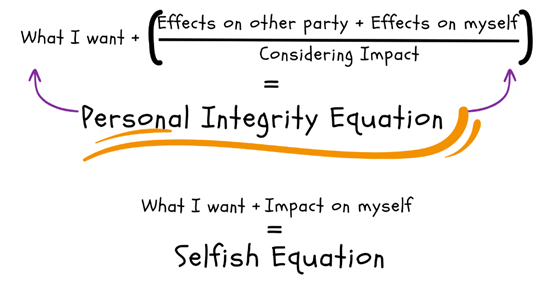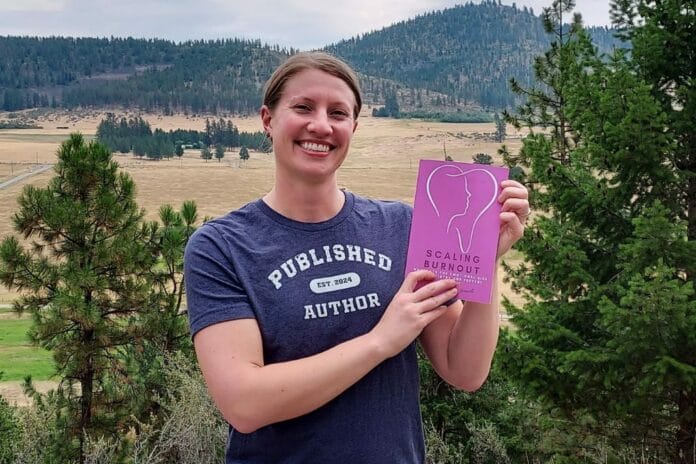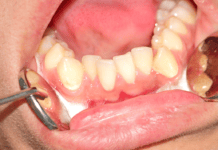The dental profession is demanding, usually involving long hours, fine motor skills in a small personal space, helping patients with dental fear and other emotions, all while maximizing production. Spending so much time confronted by the emotions of others, without many breaks between patients while trying to stay on time, can make it hard to disconnect from work.
Taking work stress home with us is easy if we aren’t careful about creating healthy boundaries for ourselves and practicing self-care.
If we don’t use self-care daily, we may eventually experience burnout. Burnout can be experienced in different degrees, and some may never experience it. Each of us might need different strategies to help avoid burnout altogether.
The sooner we address signs of burnout, the better and easier it is to treat. Left untreated, burnout can lead to a crisis mode, which could leave us traumatized, depressed, self-isolated, and potentially developing suicide ideation, which is what happened to me.
The Cycle of Burnout
My definition of burnout is a decrease in resilience to stressors in life emotionally, mentally, and physically. Stressors can come from internal and external pressures, which can contribute to burnout. Burnout can set in when you don’t have a healthy balance of work life, home life, rest, and play.
As burnout begins to set in, these pressures start to take their toll on those who struggle with perfectionism, people-pleasing, over-empathy, and self-criticism.
Internal pressures are the expectations we put on ourselves, such as:
- How we should interact with patients and co-workers
- Performing technical hygiene skills
- Building relationships with patients that encourage them to return for future appointments
- Supporting patients through their dental fears
- Unrealistic expectations we might have of how we should handle difficult situations
External pressures are the expectations of others, such as:
- Production goals
- The number of patients we treat in a day
- Completing everything at each patient visit in a time-efficient way
- Keeping patients satisfied (5-star reviews)
- Carrying our share of the work and being a good team member
- Family pressure to earn a decent wage and provide for our family financially and emotionally
There can be an increase in anxiety when anticipating pressures from certain situations. How we perceive scenarios and their outcomes determines the amount of stress and anxiety we feel.
Over time, too much stress with no recovery or enough rest and play can eventually lead someone to experience burnout, where they feel hopeless and anxious. Burnout can also be associated with feelings of inferiority, boredom, low self-esteem, low self-confidence, a loss of zeal about your career, and a diminishing of your values.
Resentment might set in about your work situation or patients. Physically, you may notice fatigue, want to sleep more and avoid your usual routine. You may turn to alcohol or drugs to cope with your overwhelmed and emotional state. Problems may seem larger, and solutions may be difficult to identify. You might even see yourself as the problem and not a solution.
How Burnout Occurred for Me
My burnout and the self-neglect it caused increased over six years to the point where I became ill, mentally and physically. However, I did not realize I was experiencing burnout. I had never heard of it. I did not make any small adjustments when I felt stressed or anxious. I let my anxiety and fears consume me, and then I would berate my self-confidence. I was too busy beating myself up, thinking it would make me work better and harder at my job.
Instead, it led to daydreaming about ending my own life and became too much of what I thought about. I did not recognize early on that I needed help with adapting to my stressors earlier, so my anxiety would not get the best of me.
I believe burnout happened to me because I had a tarnished self-esteem that I did not do much about, and I had very little self-worth. I basically believed I did not deserve help. If I could not do this on my own, then I was unfixable. This was not true or realistic.
How I Overcame Burnout
To help myself through burnout, I tried different tactics and came to realize I was missing self-care. I realized I was in my own way of accomplishing the life I wanted. I realized I wanted more than just to manage my anxiety and to not be in burnout.
I began to gobble up any self-help books I could get my hands on and started journaling about past experiences to help uncover why certain experiences made me anxious. By implementing self-care every day, I could focus on enjoying life while also preventing burnout. Focusing on self-care is more fun than only managing anxiety or burnout.
I sought a counselor, but unfortunately, it became more about book recommendations than other tactics to help. However, talking to a counselor helped me express in words what I was feeling and was a good start to my journaling to uncover ways I could help myself.
Years of therapy and work taught me that I had to learn that I had a commitment to help myself over all others. If I did not want to get better, it was not going to happen.
Writing a Book on Burnout
Journaling is what sparked an interest in possibly writing a book. This was the only topic I felt like I knew a lot about to put into book form. The whole process was long and tedious as I started from my journal entries. There are certainly easier processes to go through when writing a book, yet that was my starting point.
Writing my book, Scaling Burnout: Navigate the Emotional Side of Dentistry and Prevent Burnout, was an exercise in overcoming perfectionism and imposter syndrome as I exposed vulnerabilities and how I worked at equipping myself to improve.
People who choose dental hygiene as a career have high expectations for themselves. This is what makes us great at our job. We truly care about our patients and the care we provide. The experience of helping myself through burnout felt like I cared less about people, but it was really just including myself in the equation.
From the “People Pleaser and Personal Integrity” chapter in my book, I refer to this as the selfish vs. personal integrity equation (see Image 1).

Personal integrity is when we act on our values and can be honest about the reality of a situation. It means everyone is important, including ourselves. This is not being selfish but is being self-committed. We can think of it as the personal integrity equation against the selfish equation.
The major difference between selfish and self-committed is when we consider the impact on everyone involved, not just one party over the other. A telltale sign we left ourselves out of the equation is if we are feeling resentful. That means we gave more than we expected to receive in the transaction/interaction.
Suggestions to Avoid or Escape the Cycle of Burnout
I would suggest making a list of activities that make you feel recharged or make you feel good. These would be self-care-type items. Then, ask yourself when the last time you did this activity was. When I do this, I am usually shocked about how long ago the last time I did something that I enjoyed. My book has several examples and suggestions on different strategies to help include more recharge and self-care activities into your routine.
Be nice to yourself. If you pick yourself apart, it is time to stop that inner critic and listen to your inner coach. Your inner coach will provide great feedback without punishing you.
The dental office should be our comfort zone, so make it more comfortable. The heart and center of our comfort zone are the operatories we work in the most. It is our headquarters for helping people. Patients come to our comfort zone. The layout of our comfort zone must be suited to our ergonomics and emotional needs. Not only do we need to make patients feel welcome in it and set the appointment tone for them, but we need to do this for ourselves.
Viewing my operatory as the center of my comfort zone took me years to adopt so that I could look at my environment and help myself assess how I was handling other people’s emotions. This comfort zone is first for you, the clinician, and then second for the patient. After all, we are the ones that live there day in and day out. We get to decide what tone to set for our patients, not them.
The most important way we set the tone in our operatories is first with our mindset and then our perspectives on how we view our dental world and abilities. Positive behaviors, actions, and thoughts are ways to help progress into a growth mindset. The whole point is to create a safe, stress-free, clean, and sustaining environment for ourselves so we can feel comfortable and established in our role as a dental hygienist.
As patients come and go each day to see us for their hygiene treatment, it is up to us to clean up any emotional debris in our comfort zone to keep a happy and secure environment for ourselves. This includes any critical judgments we make of ourselves as a result or outcome of working with a stress-inducing patient scenario.
We need to filter the stress-inducing debris away before moving on to the next patient so we don’t contaminate our environment. Just like influencing the pH level of our mouth to a neutral state after having an acid exposure, we need to do the same for our comfort zone.
So, how do we filter out debris? For one, we have to be aware it is in our presence as negativity, such as blame, personalizing, assumptions, self-doubt, or anxiety about specific patient interactions. Once we recognize it, we need to stick to our constructive emotions to filter out the debris. By constructive emotions, I mean using courage and confidence to work through challenging situations and having compassion for ourselves like we do others.
An example of this in action that I use is while wiping down my operatory. I wipe away any negativity as I disinfect. I remind myself that I am separate from my patients’ emotions and I did the best I could for them today. I might make a mental note of room for improvement or remind myself I worked through something that made me anxious and overcame it. Throwing away the disinfecting wipes, I tell myself it is time to move on and start fresh for the next patient.
As I set up my room, I am also mentally setting up for my next patient and tell myself I am ready to help them. This helps prevent me from dwelling on what I did wrong or blowing mistakes or failures out of proportion. It also keeps me from ruminating over a situation again and again, which affects my mood and attitude.
Sharing your vulnerabilities with someone trusted can help, but I recommend you be selective with whom you share your vulnerabilities. I have made the mistake of telling someone about my suicide ideation who, afterward, acted like I was toxic. Some of this can be how we come across and how much distress we are in at the time. Throughout my book, I suggest you call the suicide prevention hotline, especially if you are not sure who you should tell.
I ended up telling the two hygienists I worked with because I needed to leave early to go to a counselor appointment. They were very supportive of me getting the help I needed.
Allow yourself to get help. I resisted help for so long because I told myself I was a provider who helps people, so I should not need help. We are each unique individuals and we can all use help and support to improve how we overcome situations and improve our lives.
In Closing
The process of writing a book helped me uncover more of what I had learned to help myself become successful at self-care and also in dental hygiene. I rewrote my book five times, so it took nearly five years of writing to get it to the point of completion. I decided to share my experience in hopes of even helping one person get help earlier than I did.
I have already received a few emails from other hygienists who appreciated my vulnerability on this topic. I have enjoyed hearing how they are helping themselves.












